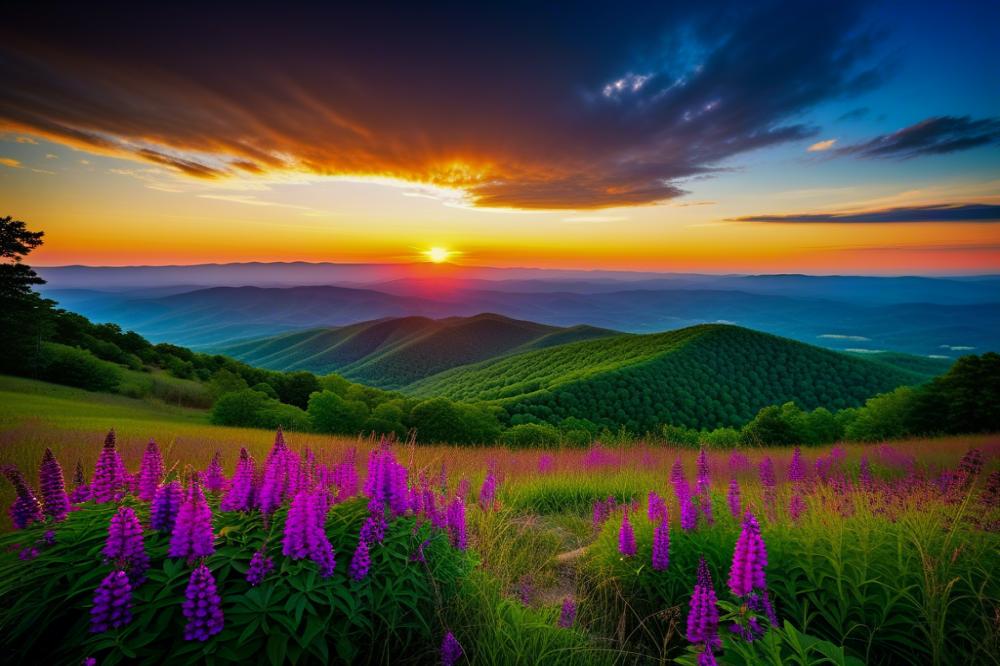Exploring Scotland’s Literary Journey
Scotland boasts a rich literary history that has shaped its culture and identity. From ancient folklore to modern novels, the contributions of various authors are noteworthy. The landscapes of the Highlands and islands, with their rugged beauty, have inspired storytelling for centuries. Likewise, historical events have left a mark on the themes and subjects found in Scottish literature.
Famous poets and novelists like Robert Burns and Sir Walter Scott have paved the way for future generations. Their works reflect deep connections to the land and its traditions. Burns’s poetry, for instance, captures the spirit of the common folk, while Scott’s novels often delve into Scotland’s complex history. Through their words, they invite readers to engage with the past and explore the cultural influence of Scotland.
Modern literature continues this tradition, building upon the foundations set by earlier authors. The innovation and creativity displayed in contemporary works demonstrate the evolving nature of storytelling. In this article, we will journey through Scotland’s literary heritage, examining how geography and history have shaped its narrative landscape. Join us as we uncover the rich tapestry of poetry, novels, and folklore that define Scotland’s unique literary identity.
Scottish literature: A Historical Perspective

The origins of literature in Scotland stretch back to ancient times. Early works often centered around oral traditions. Folk heroes and mythical tales played a significant role in storytelling. The earliest written forms included poetry and chronicles, reflecting Scotland’s rich history and cultural fabric. As the years passed, literature began to take on distinct shapes, influenced by various social and political changes.
The Medieval period was a vibrant time for Scottish authors. Writers like William Dunbar penned both satirical and allegorical works. Their poetry captured the spirit of the age, showcasing a blend of humor and deep philosophy. Ballads were particularly popular, with tales of love and battles told through melodic verses. This time also saw the rise of the known bardic tradition, which celebrated Scottish folklore.
Renaissance and Enlightenment Influences
The Enlightenment further transformed the literary landscape. Authors began to explore new ideas about society, politics, and culture. Walter Scott, another key figure, crafted novels that merged history with fiction. His works often highlighted Scotland’s medieval heritage and national identity. Scott’s storytelling captivated readers, making him a prominent literary voice of his time.
Historical Context and Literary Evolution
History has always been an integral part of literary evolution. Major events, such as the wars of independence and the Jacobite uprisings, deeply influenced writers. These occurrences shaped national pride and identity, often reflected in their works. Literature became a means to express the collective memory of Scotland’s people. Revolutionary ideas and sentiments found expression through the written word.
Modern literature continues to echo these themes. Contemporary authors draw inspiration from their rich heritage. They weave tales that blend tradition with present-day experiences. The cultural influence of past writers remains evident in their storytelling techniques. There’s a sense of continuity, a bridge connecting historical literature with today’s narratives.
Notable Scottish Authors and Their Contributions

Scotland has a rich literary tradition. Many authors have left their mark through their works. Two of the most famous are Robert Burns and Sir Walter Scott. Their contributions shaped not just literature but also the essence of Scottish identity.
Robert Burns: Poet of the People
Known as the national bard, Burns wrote poetry that resonates deeply. His verses reflect the life and struggles of everyday Scots. Poems like “Auld Lang Syne” and “To a Mouse” showcase his mastery of storytelling and folklore. Burns used his craft to connect with the common man. This connection helped elevate the Scottish voice in literature and beyond.
Sir Walter Scott: Novelist and Historian
Scott brought Scotland’s history alive through his novels. Works such as “Ivanhoe” and “Rob Roy” helped define the historical novel genre. His stories are rich with characters and settings drawn from Scotland’s past. They explore themes of loyalty, love, and conflict that are universal. Through these narratives, Scott embedded Scottish cultural influence into modern literature.
The Impact on Scottish Identity
Both Burns and Scott contributed significantly to national identity. Their works celebrate Scottish traditions and landscapes. Literature became a way for Scots to express pride in their heritage. Burns’ poetry often depicted rural life, emphasizing a connection to the land. Meanwhile, Scott created a romanticized vision of Scottish history that thrilled readers.
The legacies of these authors shaped not only literature but also the collective memory of the people. Their stories and poems continue to inspire new generations. Burns spoke to the heart, while Scott drew readers into the past. Together, they enhanced the cultural fabric of Scotland, celebrating its unique history and folklore.
The Role of Poetry in Scottish Literature

Scottish poetry holds a significant place in the nation’s literary landscape. It reveals the heart of a people through verse. Traditional ballads have long been a means of sharing tales from the past. These songs often tell of love, battles, and legends that shaped the nation. Many of these poems draw on history and folklore, linking the present with an enriched cultural heritage.
Nature frequently appears as a theme in Scottish poetry. Stormy seas, rugged mountains, and serene lochs inspire poets to express deep emotions. A feeling of connection to the land is woven into the stanzas. This bond reflects both personal experience and collective memory. When examining renowned authors like Robert Burns, the imagery of the Scottish landscape shines brightly. His verses capture the essence of rural life while celebrating the beauty of the Highlands.
Another influential figure, Sir Walter Scott, contributed significantly with his narrative poetry. His work often blends history with storytelling, bringing the past to life. The vivid characters and dramatic events lend a vibrant quality to his narrative. Through Scott, poetry offers a lens to view Scotland’s complex social dynamics.
Modern literature has also embraced poetic forms as a means of expression. Contemporary poets draw upon Scotland’s rich history while addressing current issues. They explore identity, migration, and cultural influence in their works. There is a willingness to experiment with form and style, making poetry accessible and relatable for new audiences.
The themes of Scottish poetry reveal shared experiences. Nature, history, and folklore intertwine to form a unique tapestry of storytelling. From centuries-old ballads to present-day verses, the journey of this literary form remains vital. Embracing both the past and the present, poetry continues to resonate with readers and speakers alike. The love for this art form persists, enriching Scotland’s cultural identity through each line and stanza.
Folklore and Storytelling: The Heart of Scottish Culture
Folklore plays a vital role in shaping the literary landscape of Scotland. It serves as a rich vein of inspiration for many authors throughout history. Stories of mythical creatures, brave warriors, and wise folk capture the imagination. These tales have been passed down through generations, each telling adding a layer of depth and meaning. Poetry and novels often draw from these cultural roots, emphasizing the importance of traditional narratives.
Traditional storytelling methods have deep cultural relevance in Scottish society. The art of storytelling is not just a way to entertain; it creates connections among listeners. Tellers used rhythm and rhyme to engage their audience. This oral tradition helped preserve history and customs. Gatherings often involve sharing stories late into the night, providing a sense of community and belonging.
Modern literature also weaves folklore into its narratives. Authors like Robert Burns and Sir Walter Scott explored these themes in their work. They brought folklore to life, transforming old stories into powerful poems and compelling novels. The impact of these writers is lasting, influencing countless others. As contemporary storytellers revisit age-old themes, the connections become more vivid.
Scottish folklore intertwines with literature in numerous ways. Legends about fairies, ghosts, and ancient battles are common threads. These stories provide insights into a shared cultural heritage. The magic of these tales continues to resonate today, shedding light on universal truths. Readers find wisdom and wonder within the lines of modern stories that celebrate this rich past.
Modern Literature and Its Global Influence
Contemporary Scottish authors have captured the hearts of readers worldwide. Writers like Ian Rankin, Ali Smith, and Liz Lochhead craft tales that resonate far beyond Scotland’s borders. Their works showcase a blend of poetry, novels, and storytelling that reflect a rich tapestry of cultural identity. Historical contexts intertwine with modern themes, creating narratives that engage both local and global audiences.
Burns and Scott laid the groundwork for storytelling in Scotland. Their legacy continues to inspire today’s authors, who draw from the folklore and history of their homeland. Modern literature often grapples with issues of identity, class, and socio-political dynamics. As these themes unfold, readers gain insights into not just Scottish culture but also universal human experiences.
The influence of Scottish literature stretches across continents. Many contemporary authors adopt techniques refined by earlier Scottish masters. Their innovative approaches often pave the way for new literary trends globally. Through the works of these modern writers, the art of narrative has evolved, inviting new voices and experiences into the literary fold.
Life in Scotland today remains central to the stories being told. Unpacking the complexities of everyday life allows readers to identify with characters in profound ways. Themes of resilience and community spirit emerge, reminding everyone that culture thrives even amid challenges. The narratives echo longstanding traditions while also addressing contemporary issues, showcasing a balance between old and new.
As modern authors continue to explore their roots, the cultural influence of Scottish literature remains indelible. Their works do not just reflect Scotland; they also contribute to a larger global conversation about identity and belonging. Engaging with these texts opens doors to understanding diverse perspectives. Through the lens of modern literature, readers worldwide can appreciate the beauty and complexity of Scotland’s literary heritage.
A Journey’s End: Reflecting on Scotland’s Literary Heritage
Traveling through Scotland’s rich literary landscape has been a remarkable experience. Each destination brought stories alive, from the haunting verses of Robert Burns to the enchanting tales of Sir Walter Scott. This journey has showcased the depth of creativity found in Scottish works. Understanding these narratives offers insight into Scotland’s diverse culture and history.
Literature is not merely a collection of books. It is a vital connection to the heart and soul of a nation. Every poem, novel, and story reveals emotions and ideas that resonate deeply. Exploring the lives of its authors can unveil the influences that shaped their writing. Their experiences reflect broader themes of identity and resilience, which are fundamental to Scottish heritage.
Readers are encouraged to visit the places that inspired these masterpieces. Each literary site tells its own story, inviting visitors to walk in the footsteps of great writers. Arriving at these locations can spark curiosity and deepen appreciation for the arts. Events such as festivals and book readings provide even more opportunities for engagement. They allow fans to celebrate literature alongside fellow enthusiasts.
As we conclude this journey, let us remember the importance of literature in shaping cultural understanding. Scotland’s rich tapestry of writing holds unique insights into the human experience. Whether you are a lifelong reader or new to poetry, there is something here for everyone. Explore Scotland’s esteemed literary heritage on your next holiday and connect with the stories that have captivated hearts for generations.



